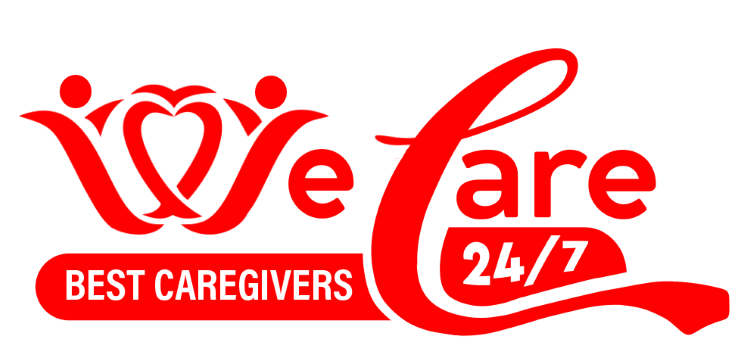Navigating NJ DDD Services: Eligibility for Adult Disability Care in New Jersey

Empowering Adults with Developmental Disabilities in New Jersey
For families across New Jersey, ensuring a high quality of life for adult loved ones with developmental disabilities is a top priority. The New Jersey Division of Developmental Disabilities (NJ DDD) offers a comprehensive network of supports and services designed to empower individuals, enhance independence, and promote community inclusion. Understanding eligibility for these vital services can feel complex, but gaining clarity is the first step toward accessing the care and assistance needed.
At WeCare Home Caregivers, we recognize the dedication of caregivers and families navigating this journey. Our aim with this post is to demystify the eligibility requirements for NJ DDD services, helping you secure the support that can make a profound difference in the lives of adults with disabilities right here in the Garden State.
What is the New Jersey Division of Developmental Disabilities (NJ DDD)?
The New Jersey Division of Developmental Disabilities (NJ DDD) is a state agency dedicated to providing services and support to individuals with developmental disabilities aged 21 and older. Their mission is to enable eligible New Jersey residents to live as independently as possible, pursue meaningful lives, and integrate fully into their communities. The DDD operates primarily under a fee-for-service system, offering individuals choice and control over their services.
These services range from residential options to in-home supports, employment assistance, and clinical care. For many families in Burlington, Camden, or Mercer counties, accessing DDD services represents a cornerstone of their long-term care planning. The DDD serves as a gateway to resources that promote dignity and well-being for thousands of New Jerseyans.
Who is Eligible for NJ DDD Services? Understanding the Core Criteria
Eligibility for NJ DDD services hinges on specific criteria established by state and federal regulations. Meeting these requirements is paramount to gaining access to the wide array of supports available. The application process requires thorough documentation, verifying each of these points.
Age Requirement: Adulthood and Beyond
NJ DDD services are specifically for adults. To be eligible, an individual must be 21 years of age or older. This typically means transitioning from services provided by the New Jersey Department of Children and Families (DCF) or school-based programs. Planning for this transition often begins well before the 21st birthday, as the application and approval process can take time.
Residency: Calling New Jersey Home
The individual seeking services must be a resident of the State of New Jersey. This requirement ensures that state resources are allocated to benefit New Jersey citizens. Proof of residency, such as utility bills, state identification, or lease agreements, will be required as part of the application.
Developmental Disability Definition: Meeting Specific Diagnoses
This is perhaps the most complex criterion. An individual must have a qualifying developmental disability that originated before the age of 22 and is likely to continue indefinitely. The specific conditions recognized by DDD include:
- Intellectual Disability: Significantly subaverage general intellectual functioning existing concurrently with deficits in adaptive behavior. This must be evident during the developmental period.
- Cerebral Palsy: A group of permanent movement disorders that appear in early childhood.
- Epilepsy: A neurological disorder marked by recurrent unprovoked seizures.
- Autism Spectrum Disorder: A complex developmental condition involving persistent challenges in social communication, restricted interests, and repetitive behaviors.
- Spina Bifida: A birth defect in which there is incomplete closing of the backbone and membranes around the spinal cord.
- Any other condition closely related to intellectual disability: This encompasses conditions that result in similar functional limitations in areas like self-care, language, learning, mobility, self-direction, or economic self-sufficiency.
The disability must manifest before age 22, indicating its developmental nature. This means conditions acquired later in life, such as a traumatic brain injury in adulthood, would not typically qualify for DDD services, though other state resources may be available.
Functional Limitations: Demonstrating Need for Support
Beyond a diagnosed condition, the individual must demonstrate substantial functional limitations in at least three areas of major life activity. These are defined as:
- Self-Care: Ability to manage personal hygiene, dressing, and eating independently.
- Receptive and Expressive Language: Understanding and communicating effectively.
- Learning: Acquiring new knowledge and skills.
- Mobility: Moving from one place to another, including navigating environments.
- Self-Direction: Making decisions, planning, and exercising control over one’s life.
- Capacity for Independent Living: Managing daily tasks and responsibilities required for independent residence.
- Economic Self-Sufficiency: Ability to manage finances and engage in employment.
These limitations must be severe enough to require ongoing support and intervention. Documentation from medical professionals, therapists, and educators is essential to illustrate these challenges comprehensively.
The Application Process for NJ DDD Services: A Step-by-Step Guide
Applying for DDD services involves several stages, requiring meticulous record-keeping and proactive engagement. Understanding each step can help streamline the process for families throughout New Jersey.
Step 1: Gather Required Documentation
Before initiating the application, compile all necessary records. This typically includes:
- Proof of Identity: Birth certificate, Social Security card, or passport.
- Proof of New Jersey Residency: Utility bills, driver’s license, or lease agreement.
- Medical Records: Diagnostic reports confirming the developmental disability, including the age of onset.
- Psychological Evaluations: Assessments of intellectual functioning (IQ tests) and adaptive behavior scales.
- School Records: Individualized Education Programs (IEPs), evaluations, and progress reports from school years, which can demonstrate the onset and ongoing nature of the disability.
- Social History: Information about the individual’s developmental milestones and social functioning.
Having these documents organized and readily available will significantly expedite the application. Incomplete submissions often lead to delays.
Step 2: Submit the Application
The application typically begins with submitting a formal application form to the DDD. This can often be found on the New Jersey Department of Human Services, Division of Developmental Disabilities website. Be prepared to provide detailed information about the individual’s background, medical history, and daily living needs.
Step 3: Eligibility Determination
Once the application and supporting documents are submitted, DDD staff review the information to determine if the individual meets the eligibility criteria. They may request additional information or clarification during this phase. This process can take several weeks or even months, so patience is key.
Step 4: Functional Needs Assessment
For those determined eligible based on the diagnostic criteria, a comprehensive functional needs assessment is conducted. This assessment evaluates the individual’s abilities and limitations across various life domains. It helps DDD understand the specific types and levels of support required. This assessment directly influences the Individualized Service Plan (ISP) and the budget allocated for services.
Step 5: Enrollment into Services and Planning
Upon successful completion of the eligibility and assessment phases, the individual is enrolled into DDD services. A Supports Coordinator (often referred to as a Case Manager) is assigned to work with the individual and their family. Together, they develop an Individualized Service Plan (ISP) that outlines the person’s goals and the specific services and supports needed to achieve them.
Important Considerations for Families in New Jersey
Navigating state services can be a complex journey. Here are some additional considerations for families seeking NJ DDD support:
The Waiting List (Waitlist) for Services
While an individual may be determined eligible, there can sometimes be a waiting list for certain DDD services, particularly residential placements or significant service budgets. New Jersey has made strides in recent years to reduce wait times, especially for those in crisis or with urgent needs. It is important to communicate any immediate needs clearly during the application process.
Medicaid Eligibility (NJ FamilyCare)
In most cases, eligibility for DDD services is tied to Medicaid eligibility through NJ FamilyCare. Individuals must meet specific income and asset limits to qualify for Medicaid, which funds a significant portion of DDD services. Understanding these financial requirements is essential, and families may need to consult with a benefits planner or elder care attorney familiar with New Jersey’s Medicaid rules.
Advocacy and Support Networks
The application process can be demanding. Connecting with advocacy groups, local disability organizations, or other families who have navigated the DDD system can provide invaluable support and guidance. Organizations like The Arc of New Jersey offer resources and advocacy assistance that can be highly beneficial.
Appeals Process
If an individual is denied eligibility for DDD services, families have the right to appeal the decision. It is important to understand the reasons for denial and gather additional documentation or information to support the appeal. This process typically involves a formal review and potentially a hearing.
How WeCare Home Caregivers Complements NJ DDD Services
Once an individual is approved for NJ DDD services and their Individualized Service Plan (ISP) is developed, families have choices regarding their service providers. WeCare Home Caregivers is an approved provider with NJ DDD, offering person-centered home care services that align with the goals of independence and community living.
Our compassionate and professional caregivers can deliver a range of services funded through DDD, including:
- Personal Care Assistance: Support with daily activities such as bathing, dressing, grooming, and personal hygiene.
- Homemaker Services: Assistance with light housekeeping, meal preparation, and maintaining a safe and clean living environment.
- Community Inclusion Support: Help with accessing community resources, participating in social activities, and transportation to appointments or events.
- Respite Care: Providing temporary relief for primary caregivers, allowing them to rest and recharge while their loved one receives excellent care.
Our services are designed to be flexible and tailored to the specific needs outlined in the ISP. Whether your loved one requires a few hours of support each week or more extensive assistance, WeCare Home Caregivers works closely with individuals, families, and Supports Coordinators to ensure seamless and effective care delivery. We pride ourselves on fostering independence while providing the necessary support for daily living in the comfort of one’s home across New Jersey.
Looking Ahead: Secure the Support Your Loved One Deserves
Navigating the path to securing NJ DDD services for an adult with a developmental disability can appear formidable, yet the benefits these services provide are immense. From enhancing daily living skills to promoting community engagement, DDD programs empower individuals to lead more fulfilling lives. Understanding the eligibility criteria – age, residency, specific diagnosis, and functional limitations – is your foundation.
Remember to meticulously gather all required documentation and be prepared for a thorough application and assessment process. Persistence and proactive communication are key. At WeCare Home Caregivers, we are committed to being a trusted partner for New Jersey families, complementing DDD services with compassionate, high-quality in-home support. Reach out to us to learn more about how our dedicated team can assist your loved one in achieving their goals for independence and well-being within the framework of their DDD Individualized Service Plan.



